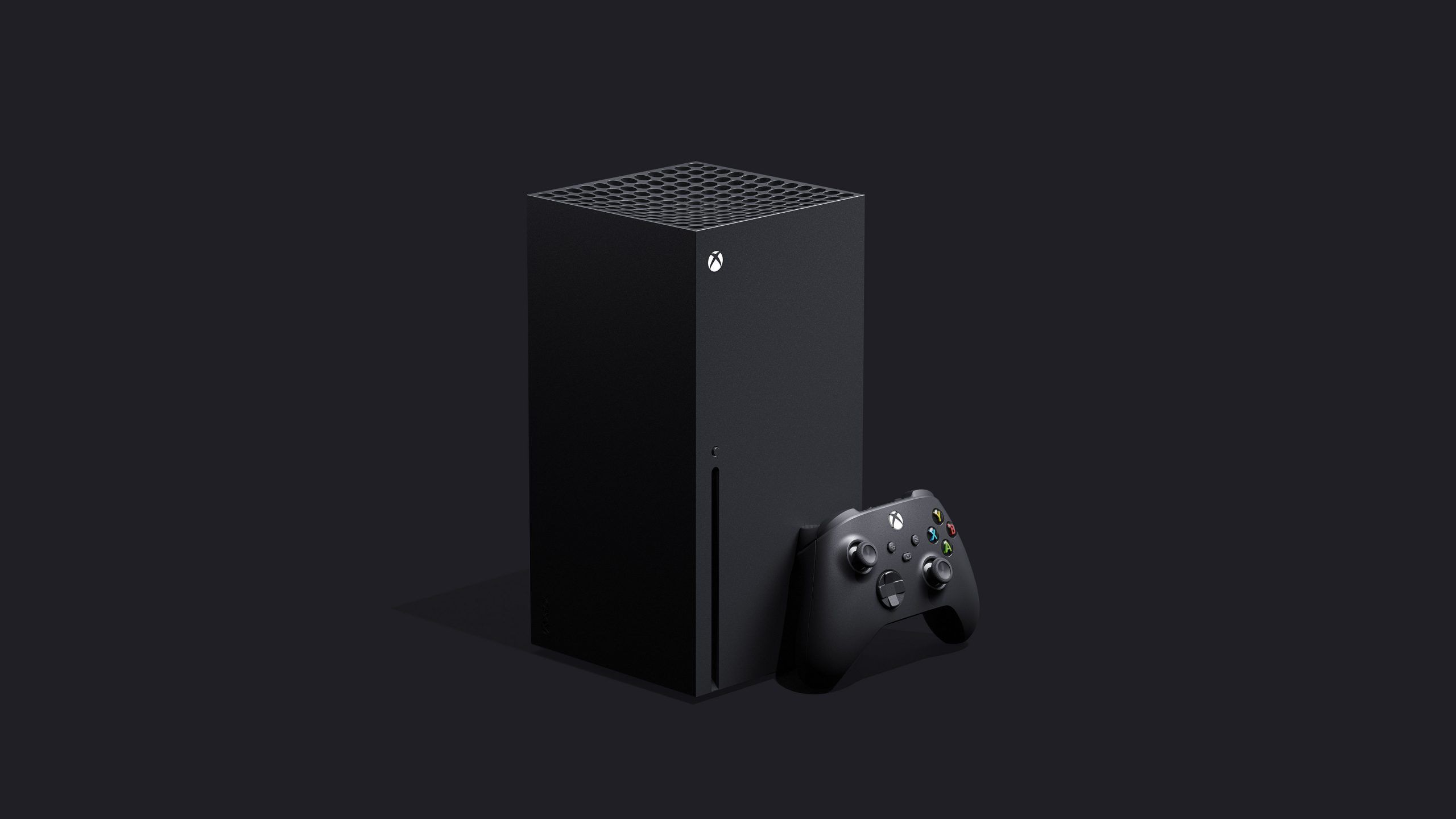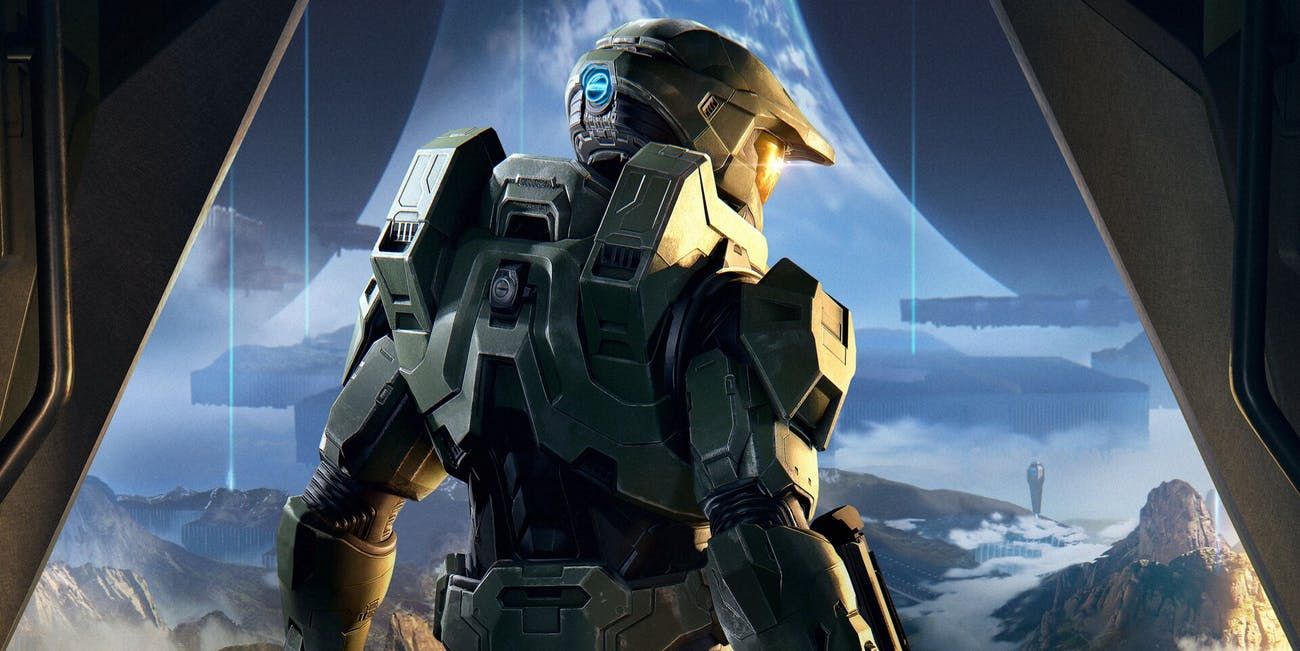The next generation of consoles is upon us. Later this year, we will be introduced to the future of gaming with brand new consoles. Microsoft has been much more upfront with the Xbox Series X, the newest iteration of Xbox's console lineup. Taking a less traditional approach to console launches, it will certainly be interesting to see how everything pans out for the upcoming next-gen console. With so many different variables in play, here is everything we know about the Xbox Series X and its counterpart, the Xbox Series S.
Xbox Series X Console Specs
Microsoft has officially revealed the specs for the Xbox Series X, and it seems Windows Central's projected specs from the initial rumors weren't too off. When the console launches, it will come packed with a custom processor that uses AMD's Zen 2 and RDNA 2 architectures. So, what does this all mean? Well, you can definitely expect the Xbox Series X to be more powerful. In fact, it will have four times the processing power of an Xbox One with 12 teraflops of GPU.
Overall, the Series X comes with an 8x Core @ 3.8 GHz (3.66 GHz w/ SMT) Custom Zen 2 CPU, and a 12 Teraflops, 52 CUs @ 1.825 GHz Custom RDNA 2 GPU. Its memory sits at 16 GB GDDR6 w/ 320mb bus with 10GB @ 560 GB/s, 6GB @ 336 GB/s memory bandwidth. In terms of storage, it has a 1 TB Custom NVME SSD with expandable storage for a 1 TB Expansion Card, as well as support for USB 3.2 External HDD.
The Xbox Series X does have some tricks up its sleeve. The console will have a form of variable rate shading (VRS) that will allow developers to utilize the power of the Xbox Series X more efficiently. "Rather than spending GPU cycles uniformly to every single pixel on the screen, they can prioritize individual effects on specific game characters or important environmental objects," says Head of Xbox Phil Spencer in the announcement. "This technique results in more stable frame rates and higher resolution, with no impact on the final image quality."
It was also confirmed that the Xbox Series X will utilize hardware-accelerated DirectX Raytracing, which will be a first for a console. This will vastly improve lighting, reflections, and acoustics that will ultimately bring a more lifelike quality to any given scene in a game.
The people at Xbox want you to do less waiting and more playing. With the console's next-generation SSD, that will absolutely be the case. Not only will this allow for games to feature more dynamic and larger worlds, but you will also be able to load into those worlds incredibly quickly both initially and through fast travel.
It was also noted that a Quick Resume feature will allow you to suspend multiple games at a time, and return to any of those games instantly. There are a few other features that give more credence to the speed of the Xbox Series X. This includes Dynamic Latency Input (DLI), which optimizes the latency of the Xbox Wireless Controller, HDMI 2.1 innovation, and 120 fps support.
How big is the console?
This topic has been one of the more controversial issues for those looking to get an Xbox Series X launch console due to its bulky nature. Initially, Windows Central estimated that it will be 30cm x 16cm x 16cm. That means it will be roughly a foot in height, and 6in in width and length when stood up.
Although many of the pictures show the Xbox Series X console standing up, Xbox Head Phil Spencer has confirmed you can lay the console down flat. If you do lay your console flat, the height of the console is estimated at 6in, the length at 12in, and the width at 6in. Depending on your home setup, it will make it slightly easier to fit the box somewhere on your TV stand.
How does this compare to the consoles you may already own? Well, it's actually not too different than you think. The Xbox One X is 11.8 x 9.4 x 2.4 inches. So, if you lay the two flat, they would be roughly the same size in length. However, the Series X would be twice as tall, but not as wide. The same estimations apply to the PS4 Pro, which is 12.9 x 11.6 x 2.17 inches.
The best visual representation comparison I have seen so far is the IGN video above. While it isn't the actual console, it is a good representation of what to expect.
Backward compatibility and exclusives
In Head of Xbox Phil Spencer's recent announcement detailing the many features of the Xbox Series X, he gave a bit more specifics on exactly how backward compatibility will work with Microsoft's next-gen console.
The Xbox Series X will be fully backward compatible with the Xbox One. That means Xbox One games, as well as the current slate of Xbox 360 and original Xbox backward compatible titles, will work for the next-gen console. They will also play better with steadier framerates, faster load times, and improved resolution.
It was also confirmed that Xbox Game Pass will be heading to the next-gen. Yes, you will be able to get the subscription service on day one. Yes, Halo Infinite, the newest entry in the beloved Halo franchise, will be available on Xbox Game Pass when the game launches, though the game has been delayed to sometime in 2021.
One of the more surprising announcements to come from Spencer's post was "Smart Delivery," a new technology that will allow you to purchase any version of a game, and it works for all platforms. For example, if you purchase Halo Infinite for the Xbox One, you can use that same version to play the Xbox Series X version without spending another penny. Smart Delivery will be utilized for all Xbox Game Studios titles, and is available for all developers and publishers to use if they choose to. Another title that is confirmed to use Smart Delivery is CD Projekt Red's Cyberpunk 2077.
Xbox Series S
Alongside the Xbox Series X, it's been rumored for some time that Microsoft had a secondary version of its next-gen console in development, known initially as "Project Lockhart." Thanks to recent leaks, the console has officially been confirmed as Xbox Series S, which will offer a lower price point entry into both the next-generation and Microsoft's Xbox ecosystem.
As revealed this week, the Xbox Series S will retail for $299 and offers the next-gen Xbox experience in "the smallest Xbox ever created." Compared to the Xbox Series X, the Series S is notably less powerful in terms of hardware, primarily in terms of resolution. However, the Series S will match the Series X's CPU and performance, and offers the ability to play games in up to 120fps at 1440p, while featuring support for ray tracing and variable rate shading.
Like the Digital Edition of the PS5, the Xbox Series S is an entirely digital console, and features a 512GB custom SSD drive to offer speedier performance and reduced loading times. Additionally, the system will also support the touted features of the Series X so far, such as Smart Delivery and Quick Resume. At its $299 price, this makes the Series S an appealing console for those that want to dive into the next-gen experience at the lowest cost, despite a few of the compromises that you'll make compared to the Series X or the PS5.
Before I dive into the games coming to Xbox Series X, I want to get into how this next console changes how Microsoft will approach consoles and console launches moving forward. When the console was initially revealed, it was confirmed that backward compatibility will be a feature for the Xbox Series X. In that very first reveal video, Spencer said, "I don't lose my last generation as I move into the next generation; the people I play with and the games that I want to play. That experience should be continuous and always growing."
This ideology seems to go both ways, according to an MCV interview with Xbox's Matt Booty. At least during the first few years of the Xbox Series X's life cycle, Xbox games will play up and down the Xbox family of consoles. That means games that launch with the Xbox Series X will also be compatible with the Xbox One series of consoles.
"As our content comes out over the next year, two years, all of our games, sort of like PC, will play up and down that family of devices," says Booty. "We want to make sure that if someone invests in Xbox between now and [Series X] that they feel that they made a good investment and that we're committed to them with content."
The idea of console exclusives for the Xbox brand is kind of non-existent, which says a lot on how Microsoft is handling video game consoles in the foreseeable future. Rather than a "beginning" and "end" to a console, Microsoft is taking a more iterative approach where all of Xbox's exclusives will work for both current and old Xbox models. I like to think of it as to how smartphones work. That may not be accurate necessarily, but that is how I understand it.
Whether the Xbox One family of consoles will become obsolete is a question that can only be answered with time. You could assume that developers will be developing games with certain consoles in mind and that eventually, these games will be too much for the Xbox One to handle. Only time will tell.
Games coming to the Xbox Series X
With that prior section in mind, so far it seems like any game (for the immediate future) that is coming to Xbox One will also be supported on Xbox Series X. Couple this with Game Pass, and there should be quite a few games to play when the Xbox Series X launches in November.
With that said, let's talk exclusively about games with next-gen in mind. What games will focus on using the power of the Xbox Series X? Here is a full list of confirmed next-gen games coming to Xbox Series X, so far:
- Halo: Infinite
- Senua's Saga: Hellblade 2
- Lord of the Rings: Gollum
- Gods & Monsters
- Watch Dogs: Legion
- Tom Clancy's Rainbow Six Quarantine
- Battlefield 6
- Cyberpunk 2077
When will the Xbox Series X and Series S launch, and what are the prices?
Microsoft has confirmed that both the Xbox Series X and Series S will be launching on November 10, 2020, putting them a few weeks before Black Friday. In terms of pricing, the Series X will retail for $499, while the Series S will come in at $299, putting a $200 price difference between the two consoles. Pre-orders for both consoles will open starting on September 22, 2020 through both Microsoft and retailers such as Amazon, Best Buy, GameStop, Target, Walmart, and more.
Additionally, Microsoft will be offering its Xbox All Access Program for both systems, which provides a financing plan to pay for either console monthly rather than all upfront. The Series X plan will cost $35/month and the Series S will be $25/month for 24 months, and both plans include a subscription for Xbox Game Pass Ultimate.
The Xbox Series X and Series S will both be launching on November 10, 2020. Make sure to check back here for more info on Microsoft's upcoming consoles as they get closer to their release this holiday season.


